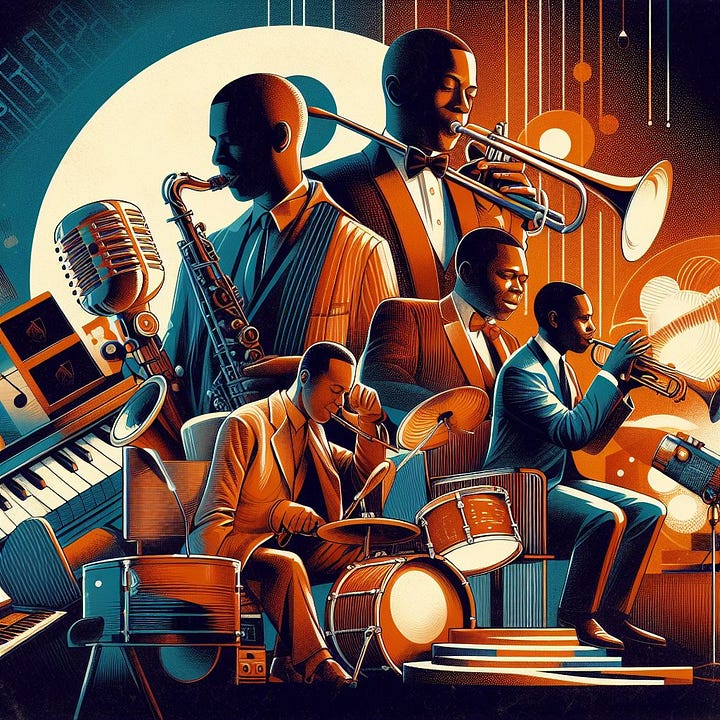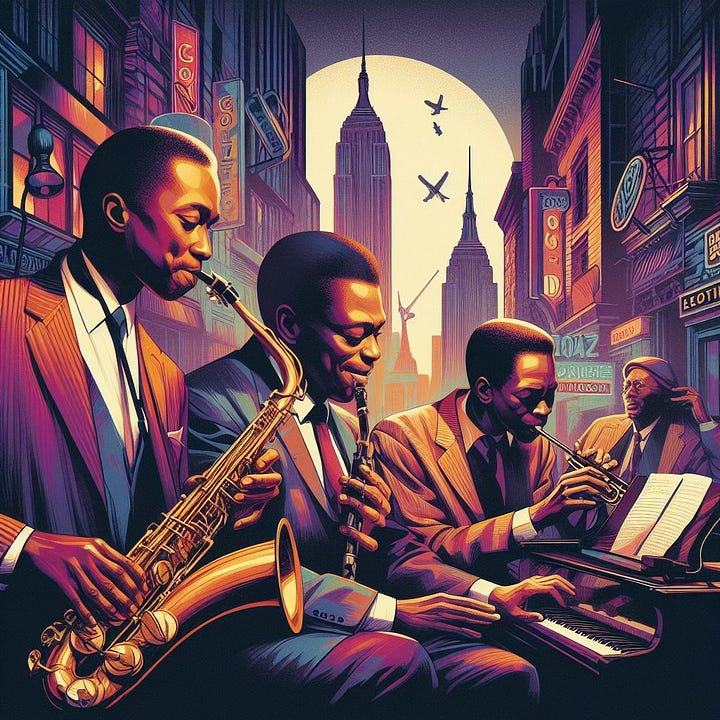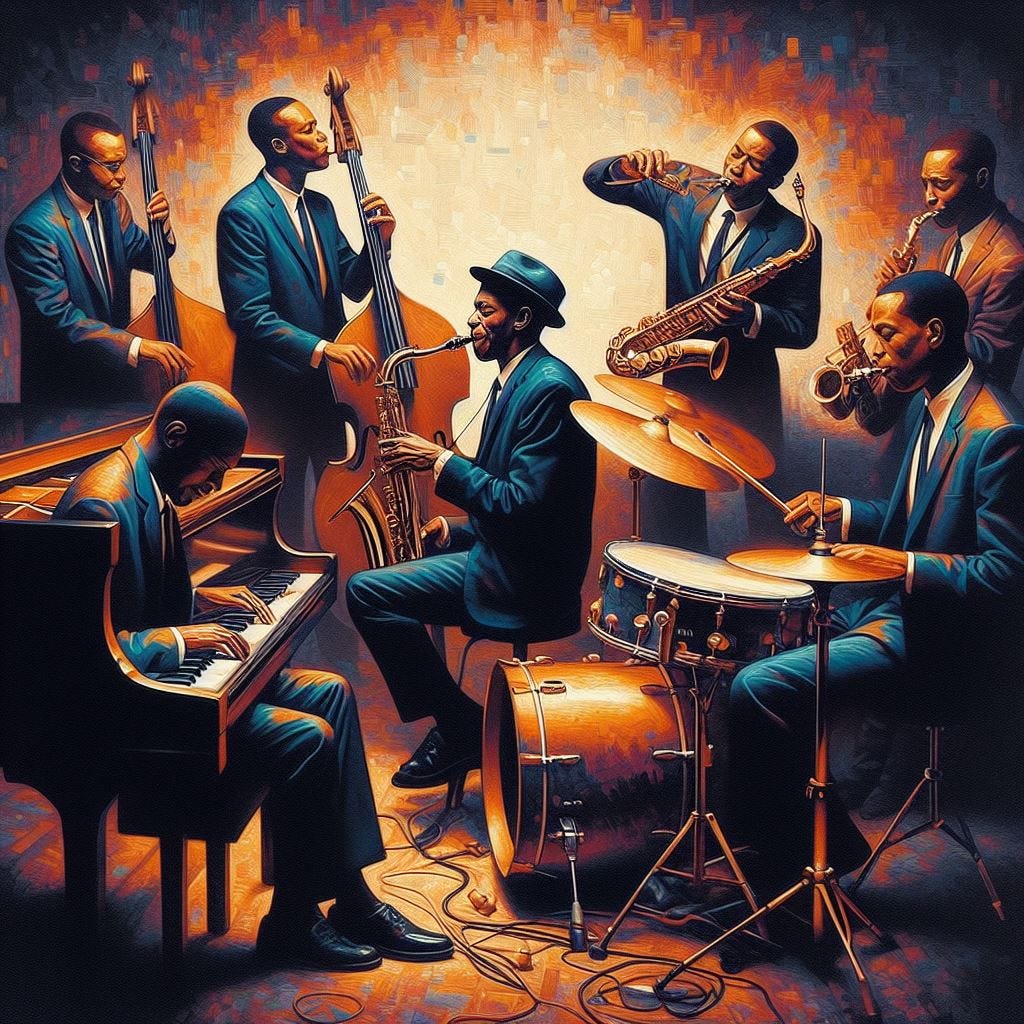Jazz helps us be sensitive to the full spectrum of human experience. Far from offering rose-colored glasses, it realistically speaks of sorrow and pain. Jazz stimulates us to feel deeply and truthfully. It thunders a mighty "yes" to the complexities of life.
When Miles Davis unleashes the cacophony that can barely be contained by the word "song," we come closest to the unimaginable, the potential of the future, and the source of our being. Jazz musicians will tell you that improvisation is a risky business, yet they also acknowledge, as John Coltrane did, that sometimes their inspiration comes from divine sources. When you listen to Coltrane, you hear beyond the notes - you hear the old neighborhood and the folks we left behind emerge behind the half notes. The straining trumpet blasts away the illusion that our upward mobility will bring lasting peace.
While jazz challenges and prods us, it also takes us to church. Historian Martin E. Marty observed that the key to understanding the links between worship and jazz is the emotion of awe, which is accessible to everyone. Jazz can erupt in joy, and this joy infused with the riffs of awe tends to be unspeakable. Art, like jazz, carves pathways toward our inner spiritual islands. When we become isolated in our heads, we distance ourselves from the God who is closer than our next breath. The restoration of wonder is the beginning of the inward journey toward the God who, people of faith aver, is always waiting in the seeker's heart. For some, the call to worship comes as joy spurts from jazz riffs.
Instrumental music is a potential spiritual gift for both the listener and the musician. A jazz quartet can utter things in the presence of God that mere words fail to say. A saxophone can lament on behalf of those who feel helpless, a piano may offer intercessions for those in need, and drums and cymbals may call pilgrims to break into joy. As theologian Thomas Merton observed, the improvisation of a jazz band can be a form of prayer, "the new liturgy."


(adopted from: Martin E. Marty, All That Jazz; Barbara A. Holmes, Joy Unspeakable; Ron Seitz, Song for Nobody; William G. Carter, Thriving on a Riff)




